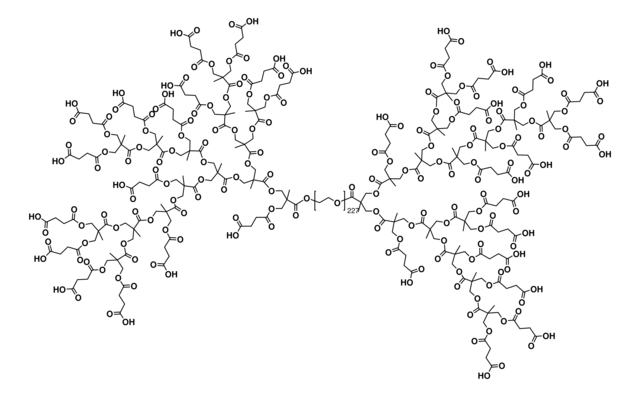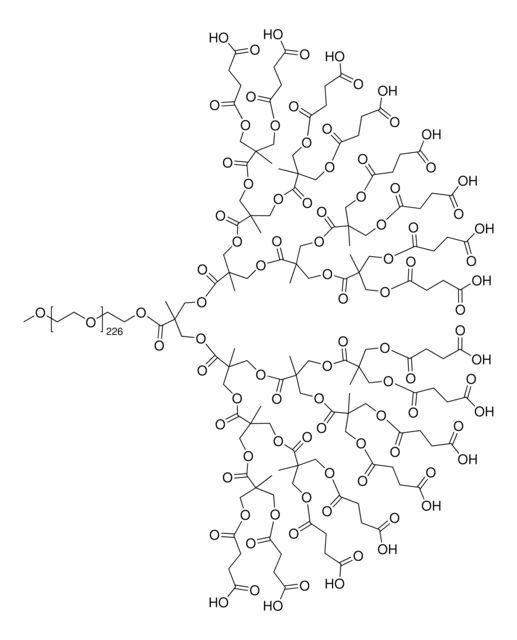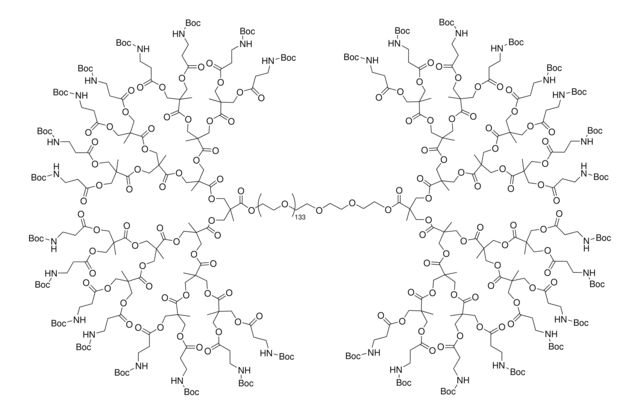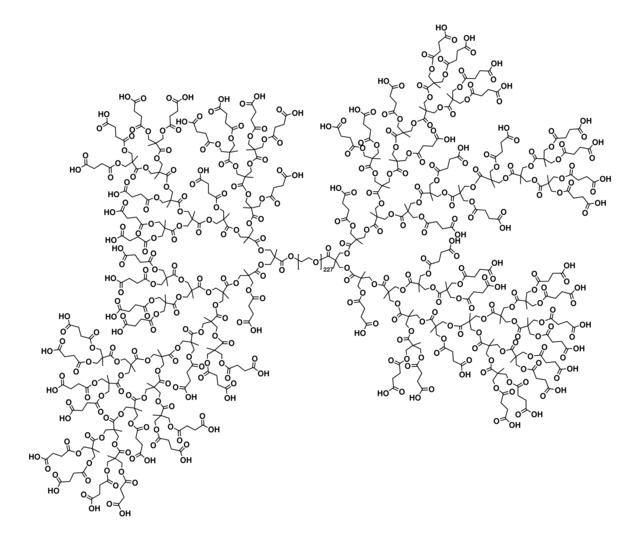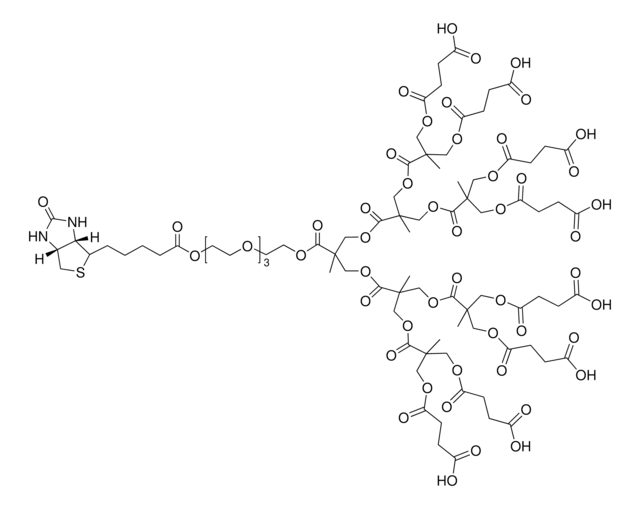911313
Poly(ethylene glycol) linear dendron
carboxyl terminated, PEG Mn 10,000, generation 1
About This Item
Recommended Products
form
solid
mol wt
PEG Mn 10,000
generation 1
no. Surface Groups
2
color
white to off-white
storage temp.
−20°C
General description
- Polymer architecture: PEG-linear dendron
- Generation: 1
- PEG average Mn: 10,000
- End Group Functionality: Carboxylic acid
- No. Surface Groups: 2
- Calculated Mol. Wt.: 10348.34 g/mol
- Bis-MPA = 2,2-Bis(hydroxymethyl)propionic acid
Application
Storage Class
11 - Combustible Solids
wgk_germany
WGK 3
flash_point_f
Not applicable
flash_point_c
Not applicable
Choose from one of the most recent versions:
Certificates of Analysis (COA)
Don't see the Right Version?
If you require a particular version, you can look up a specific certificate by the Lot or Batch number.
Already Own This Product?
Find documentation for the products that you have recently purchased in the Document Library.
Articles
Dendritic molecules' biomedical applications, particularly bis-MPA dendritic scaffolds, hold promise for drug delivery.
Dendrimers, polymer nanostructures, are synthesized for specific purposes by manipulating critical nanoscale design parameters (CNDPs).
Our team of scientists has experience in all areas of research including Life Science, Material Science, Chemical Synthesis, Chromatography, Analytical and many others.
Contact Technical Service